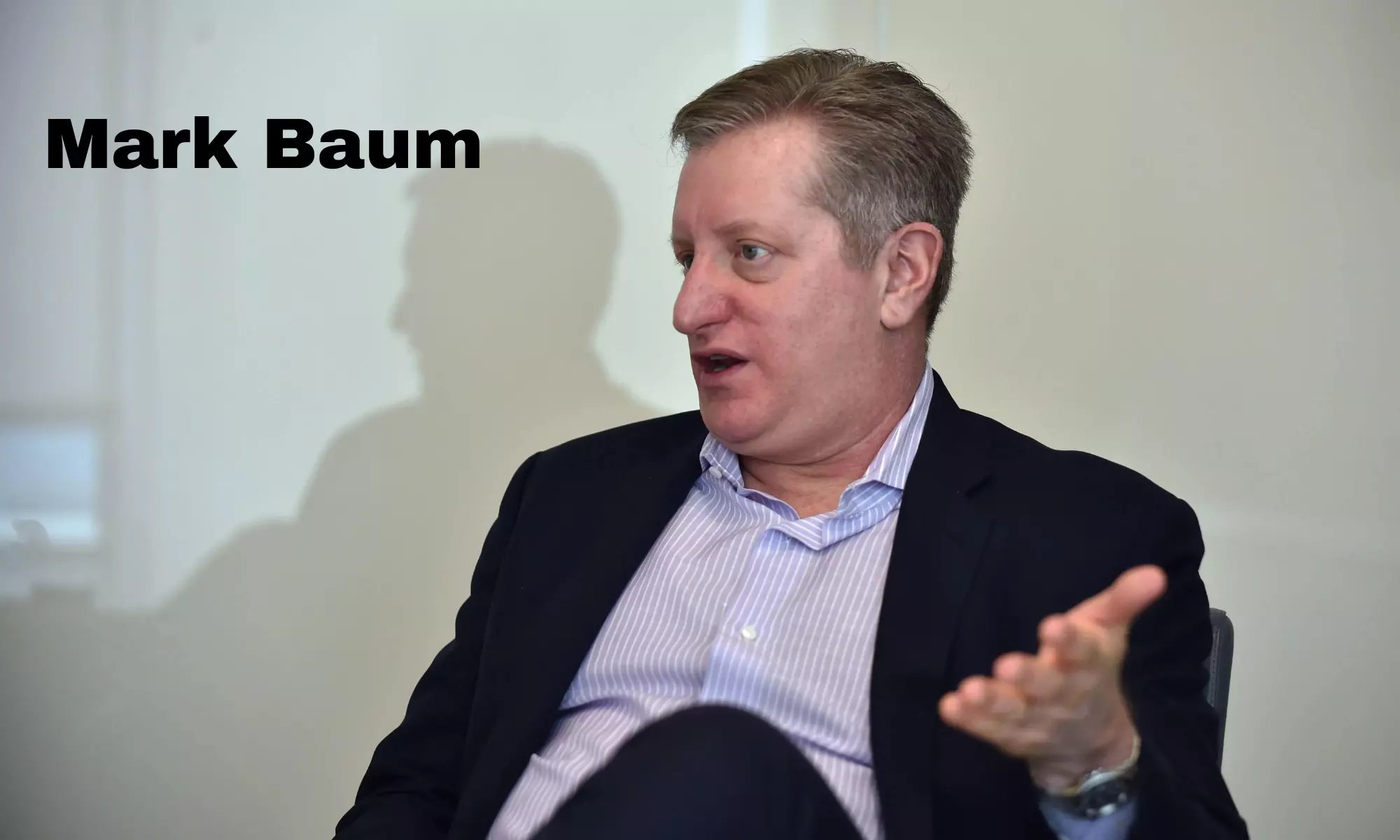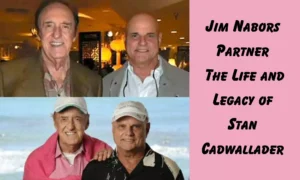The Big Short, directed by Adam McKay, is one of the most celebrated films to cover the 2007-2008 financial crisis. The film, based on Michael Lewis’s best-selling book, is famous not only for its complex subject matter but also for its characters, especially Mark Baum, portrayed by Steve Carell. But who exactly is Mark Baum, and how does his story relate to real-world events?
In this post, we will take a deep dive into the real person behind Mark Baum, his role in the financial meltdown, and how his legacy continues to shape the finance world today.
The Big Short: A Quick Overview
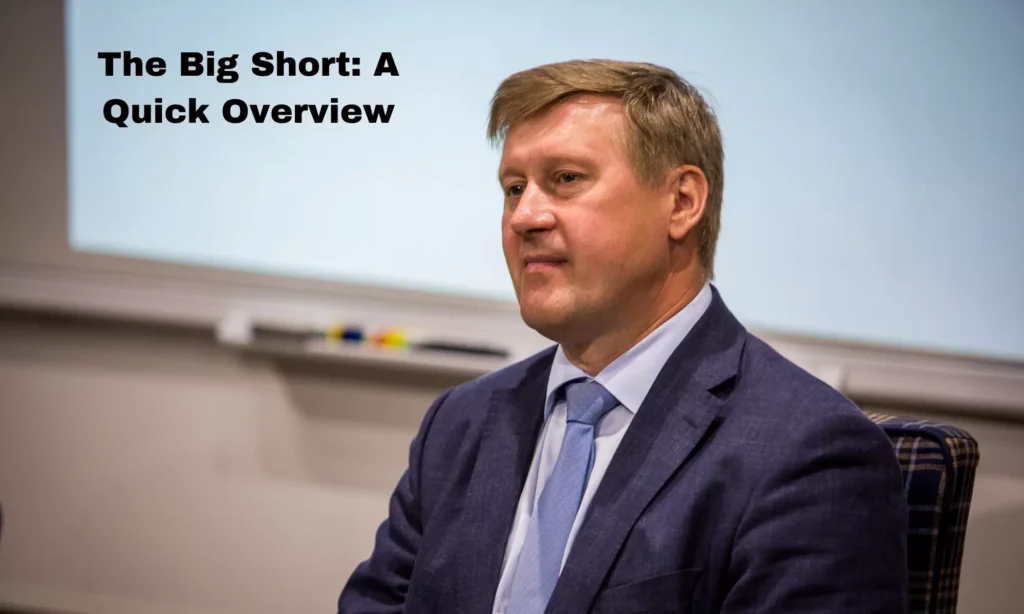
Released in 2015, The Big Short tells the story of the 2008 financial crisis from the perspectives of a few eccentric traders who foresaw the collapse of the housing market. At its core, the movie shows how these traders profited by shorting Collateralized Debt Obligations (CDOs)—a major catalyst for the global financial meltdown.
Mark Baum, played by Steve Carell, is one of the standout characters. His cynical view of Wall Street and his disgust with the financial industry’s greed resonate with viewers. In the film, Baum’s team works for FrontPoint Partners, a hedge fund, and focuses on betting against CDOs. The role highlights how Baum navigated the crisis and what it meant for his hedge fund’s performance.
Key Players in The Big Short:
- Mark Baum (Steve Carell) – Based on Steve Eisman, a real-life hedge fund manager.
- Michael Burry (Christian Bale) – A quirky yet brilliant trader who made his fortune predicting the housing collapse.
- Jared Vennett (Ryan Gosling) – A smooth-talking trader who plays a pivotal role in the housing short.
- Ben Rickert (Brad Pitt) – A former banker who helps two young investors short the housing market.
Is Mark Baum Based on a Real Person?
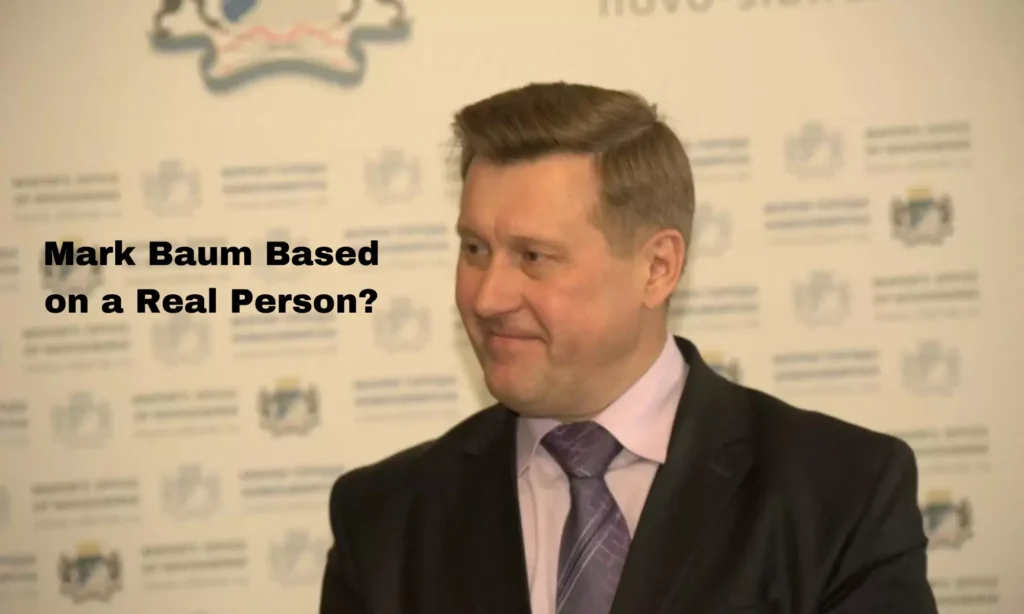
Yes, Mark Baum is a fictional character based on Steve Eisman, a well-known hedge fund manager. Eisman played a critical role during the 2007-2008 financial crisis, most notably by shorting the subprime mortgage market. His cynical worldview and moral outrage over the corruption and greed in the financial sector are captured in the movie.
Steve Eisman wasn’t just any hedge fund manager; he was one of the few who saw the impending collapse of the housing market and took bold action by betting against it.
Who is the Real Mark Baum? Steve Eisman’s Background
Steve Eisman comes from a background of wealth and privilege, having grown up in New York City as the son of a well-connected lawyer. However, he earned his reputation in finance through his sheer talent and relentless work ethic. Eisman began his career as a stock analyst in the 1990s, covering financial companies, and quickly rose to prominence.
Steve Eisman’s Early Career:
- Started at Oppenheimer & Co., where he specialized in analyzing financial stocks.
- Gained recognition for his sharp insights into mortgage companies.
- His experience in analyzing mortgage-backed securities (MBS) laid the groundwork for his later predictions.
By the time the 2000s rolled around, Eisman had a sharp understanding of how subprime mortgages were impacting the financial markets. He realized that the system was becoming more vulnerable, and his conviction that a collapse was inevitable led him to take bold positions against the market.
What Was Mark Baum’s Role in The Big Short?
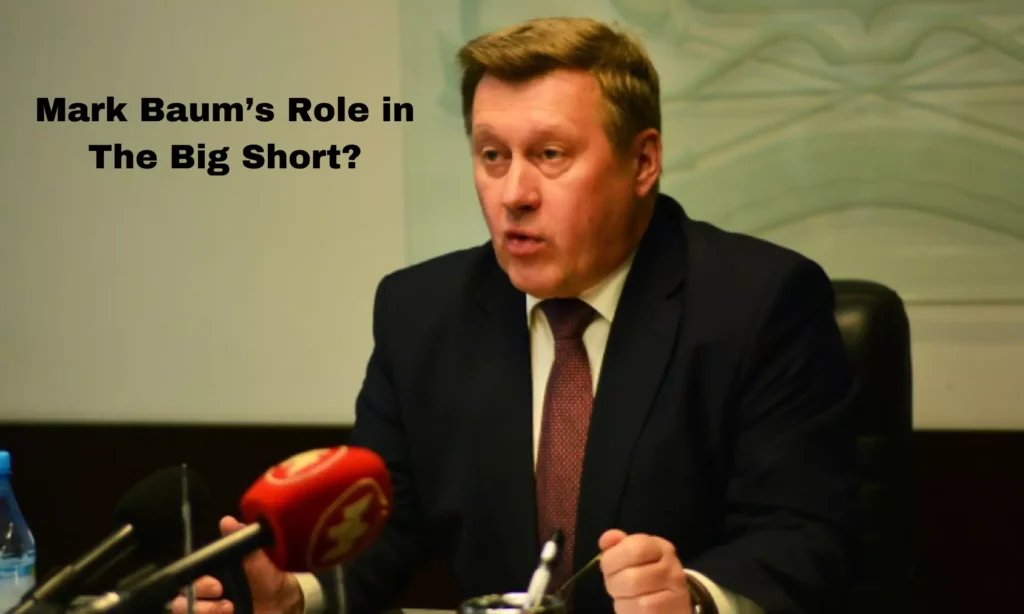
In The Big Short, Mark Baum leads a team of traders at FrontPoint Partners, a hedge fund subsidiary of Morgan Stanley. His character is a deeply frustrated man, disgusted by the greed and fraud he sees on Wall Street. This frustration drives Baum to bet against the subprime mortgage market.
While Michael Burry and others were among the first to see the cracks in the financial system, Baum’s team plays a crucial role in identifying CDOs as toxic assets and shorting them, a move that ultimately proves profitable.
Mark Baum’s Core Motivations:
- Moral outrage over Wall Street’s recklessness.
- A desire to expose fraud in the financial industry.
- Determination to profit from his convictions, despite skepticism from others.
In real life, Steve Eisman was driven by similar motivations. His deep analysis of mortgage-backed securities led him to conclude that the market was unsustainable, and he positioned his fund to profit from the inevitable collapse.
Steve Eisman’s Predictions: How Did He Foresee the 2008 Crisis?
One of the defining moments in The Big Short is when Baum (Eisman) begins to fully understand the severity of the subprime mortgage crisis. But how did Steve Eisman foresee the crash?
Eisman’s Key Insights:
- Flawed Mortgage Lending Practices: He observed how lenders were giving out mortgages to people who couldn’t afford them, packaging these bad loans into CDOs, and selling them to investors.
- Over-Leveraging: Eisman realized that many banks and hedge funds were highly leveraged, meaning they had borrowed heavily to buy these toxic assets. When the housing market would inevitably decline, they would be wiped out.
- Corruption in Rating Agencies: He understood how rating agencies like Moody’s and Standard & Poor’s were giving AAA ratings to financial products that were, in reality, extremely risky.
Steve Eisman’s research and analysis were grounded in his deep understanding of mortgage-backed securities and financial markets. His conviction grew stronger as he saw the systemic flaws in the financial system and the inevitable collapse of housing prices.
How Accurate is Steve Carell’s Portrayal of Steve Eisman?
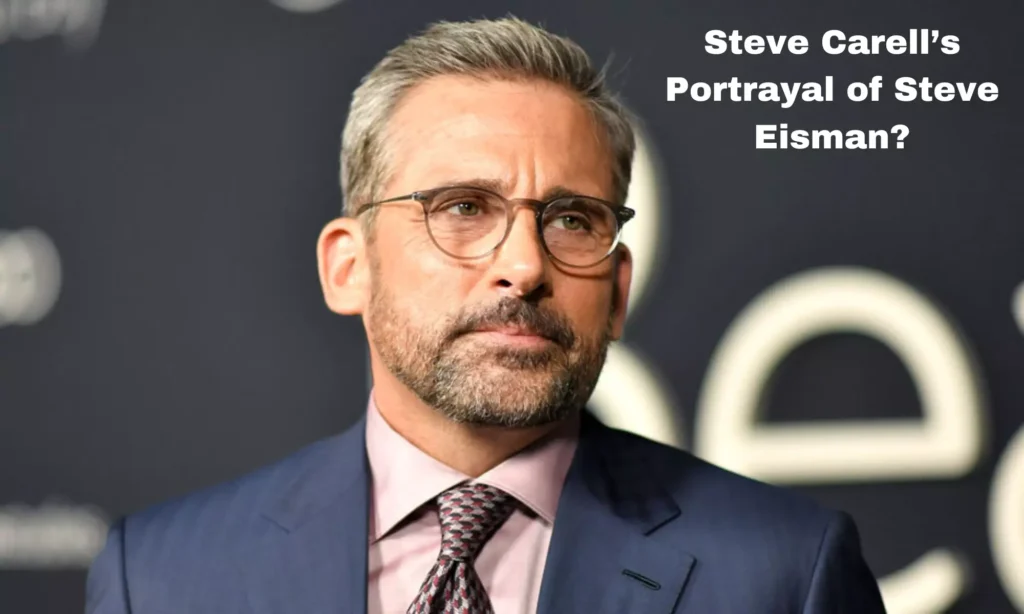
One of the reasons The Big Short resonated with audiences is the powerful performances by its cast. Steve Carell’s portrayal of Mark Baum (Steve Eisman) was praised for its intensity and depth, but how close was it to the real person?
Steve Carell vs. Steve Eisman:
- Physical Appearance: Carell’s portrayal was slightly dramatized, with Baum’s character appearing more irritable and neurotic. In real life, Eisman is known for his wit and sharp sense of humor, though he does share Baum’s cynicism.
- Moral Outrage: Carell captures Eisman’s anger at the system. The real Steve Eisman was known for being deeply frustrated with the financial system’s corruption and the widespread fraud among lenders.
- Financial Expertise: The film accurately portrays Eisman’s deep knowledge of the markets and his role in identifying the flaws in the mortgage market.
While Carell’s portrayal may have exaggerated certain personality traits, the core essence of Eisman’s character—his frustration, brilliance, and moral clarity—remains intact.
The Financial Outcome: How Much Did Mark Baum (Steve Eisman) Make from The Big Short?
One of the most frequent questions asked about The Big Short is: How much did Steve Eisman (Mark Baum) make from his bets against the housing market?
Hedge Fund Performance:
- FrontPoint Partners made an estimated $1 billion in profits by shorting CDOs.
- Steve Eisman personally earned tens of millions of dollars from these trades.
These profits were the result of Eisman’s team betting against the housing market at a time when most of the financial world was still optimistic. Their positions paid off handsomely as the collapse unfolded.
What Happened to Steve Eisman After The Big Short?
After the financial crisis, Steve Eisman continued his career in finance but with a renewed focus on regulatory reform and making the system more accountable. He has also become an outspoken advocate for better oversight of the financial sector.
Steve Eisman’s Post-Crisis Career:
- Moved to Neuberger Berman, where he manages portfolios focused on financial stocks.
- Became a public commentator on financial markets, frequently discussing the need for stronger regulation.
- Advocated for the Dodd-Frank Wall Street Reform, which aimed to prevent another financial collapse by increasing oversight of banks and lending practices.
Eisman’s role as a financial expert and advocate for reform has cemented his legacy as one of the key figures to emerge from the 2008 crisis.
The Legacy of Mark Baum and Steve Eisman
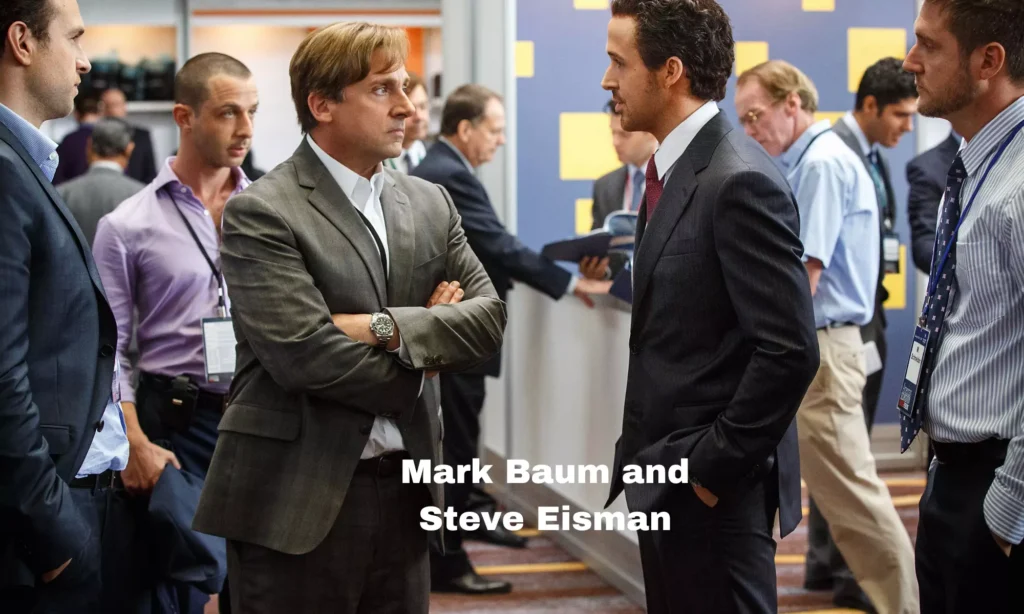
The legacy of Mark Baum in The Big Short and Steve Eisman in real life continues to shape discussions around financial markets and regulation. Eisman’s story is not just one of profit but also of exposing the systemic flaws in the financial system that allowed the crisis to happen.
Key Takeaways from Steve Eisman’s Story:
- Moral Responsibility: Eisman’s decision to bet against the market wasn’t just about profit—it was about exposing the corruption in the system.
- Financial Acumen: Eisman’s ability to analyze complex financial products and predict their collapse showcases the importance of deep research in investing.
- Regulatory Reform: His advocacy for tighter regulations after the crisis underscores the need for ongoing vigilance in financial markets.
Conclusion
Mark Baum, as portrayed in The Big Short, is a character that captures the frustration, brilliance, and moral conviction of Steve Eisman. In real life, Eisman’s actions during the 2007-2008 financial crisis not only made him a fortune but also exposed the deep flaws in the financial system.
The legacy of Steve Eisman and his fight for stronger regulations serves as a reminder of the need to hold financial institutions accountable, even as we move further from the crisis. His story continues to be a source of inspiration for those looking to understand the complexities of the financial world.
In a world where greed and corruption often go unchecked, the actions of Mark Baum and Steve Eisman remind us of the importance of standing up for what is right, even when the odds are against you.
